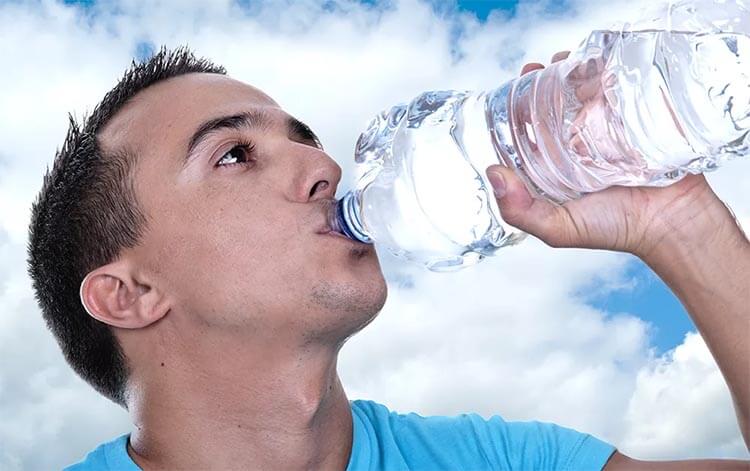When we talk about muscle growth and maintenance, one cannot overstate the significance of diet. Nutrients from food act as the power sources required for strenuous workouts and simultaneously serve as the fundamental building blocks for new muscle tissue. Gaining a deeper insight into how food and muscle interact can enable us to make more informed dietary choices, thereby promoting enhanced muscle growth.
From the macronutrients we consume to the timing of our meals, every dietary decision we make can have a profound impact on our body’s ability to build and maintain muscle. Protein, carbohydrates, and fats each have specific roles in this complex process. While protein provides the raw materials for muscle growth, carbohydrates and fats supply the energy needed for our workouts and day-to-day activities.
Proper hydration is another critical aspect of diet that affects muscle health. Staying well-hydrated not only helps maintain optimal physical performance during workouts but also aids in the transport of nutrients to our muscles and the removal of waste products from our body.
Table of Contents
ToggleThe Science of Muscle Growth
Understanding how muscles grow involves delving into the realms of exercise physiology and nutrition. Muscle growth, technically referred to as muscle hypertrophy, is a complex process that is driven by resistance training and the availability of adequate nutrients.
Resistance training, such as weightlifting, causes tiny tears in our muscle fibers. This damage triggers an inflammatory response, which then signals the body to repair and rebuild the damaged fibers. The repaired fibers are stronger and larger than before, leading to muscle growth.
However, muscle repair and growth cannot occur without the right nutrients. This is where diet comes into play. Proteins and their constituent amino acids act as the building blocks of muscle tissue. Consuming sufficient dietary protein ensures that the body has enough amino acids to repair damaged muscle fibers and stimulate the growth of new ones.
For a more detailed explanation of muscle growth and the physiological processes involved, the article titled “Exploring the Might: Understanding Muscle Mass” provides a comprehensive overview.
Protein: Muscle’s Primary Building Material
Often regarded as the ‘building block of life,’ protein’s importance for muscle growth and repair cannot be overstated. Consumed protein is broken down into its constituent amino acids, which the body uses to build new proteins for various functions, including the repair and growth of muscle tissue.
This process, known as protein synthesis, plays a pivotal role in muscle growth. When the rate of protein synthesis exceeds the rate of protein breakdown, muscle growth occurs. Ensuring a steady intake of protein throughout the day can help maintain a state of net protein synthesis, promoting muscle growth and repair.
Protein also aids in recovery post-workout by reducing muscle soreness and enhancing the repair of workout-induced damage to muscle fibers. A closer look at the role of protein in muscle growth is provided in the blog post “Powering Up With Protein: The Master Builder of Muscle Growth”.
 Carbohydrates: Fueling Muscle Energy and Recovery
Carbohydrates: Fueling Muscle Energy and Recovery
Carbohydrates have a dual role when it comes to muscle growth and recovery. They are the body’s preferred source of energy during workouts. Consumed carbs are broken down into glucose, which is then used to fuel our muscles during exercise. Having sufficient carbs before a workout can improve performance, allowing us to train harder and stimulate more muscle growth.
In addition to fuelling workouts, carbohydrates also contribute to post-workout recovery. Intense workouts deplete glycogen stores in our muscles. Consuming carbs post-workout replenishes these glycogen stores, facilitating recovery and preparing our muscles for the next workout.
For an in-depth exploration of how carbohydrates influence muscle energy and recovery, the article “Physical Activity and Its Influence on Muscle Mass” serves as an excellent resource.
To enhance the dietary intake and further support muscle growth, supplementation can play a pivotal role. For those seeking a reputable muscle mass supplement, Meltamin is a choice popular amongst fitness enthusiasts.
Fats: Essential Players in Hormone Regulation and Muscle Health
While fats have often been misunderstood and negatively portrayed in dietary discussions, their importance in promoting good health and muscle growth is undeniable. Fats play a crucial role in the regulation of hormones, particularly testosterone, which is fundamental in muscle development.
Dietary fats, specifically monounsaturated and polyunsaturated fats, contribute significantly to the production and balancing of hormones. This hormonal balance aids muscle recovery and supports growth. Notably, essential fatty acids, such as omega-3 and omega-6, which our bodies cannot produce independently, are vital for overall health. They have anti-inflammatory effects that can aid in muscle recovery following strenuous workouts.
Furthermore, fats are also a valuable energy source. During prolonged bouts of exercise, when glycogen stores are depleted, the body turns to fat as an alternative energy source. This makes dietary fats a pivotal component in an athlete’s nutritional plan. Understanding the role of fats in muscle growth can be complex, however, an informative resource worth reading for more detailed insights is Unraveling the Mystery: Gender Differences in Muscle Mass. Here you’ll find a detailed exploration of the subject.
 Hydration: An Unsung Hero in Muscle Function
Hydration: An Unsung Hero in Muscle Function
The integral role of hydration in muscle function and growth is often overlooked. Water is paramount for various bodily functions, including the transport of nutrients and removal of waste products, both of which are fundamental to muscle health.
Dehydration can critically impair physical performance, limit muscle growth, and even lead to muscle cramps. Therefore, ensuring an adequate water intake is non-negotiable when following a regimen focused on muscle growth and recovery. Beyond the conventional advice of drinking 8 glasses of water a day, hydration needs can dramatically increase with intense exercise and increased muscle mass. Understanding and meeting your personal hydration needs can significantly improve muscle function and promote healthy muscle growth.
Vitamins and Minerals: Critical for Muscle Recovery
Vitamins and minerals extend beyond their typical understanding as micronutrients – they serve as vital co-factors in a range of metabolic reactions within the body, including those involved in muscle recovery and growth.
Certain vitamins, like vitamin D, play a direct role in muscle function and growth. In contrast, minerals such as calcium and magnesium are essential for muscle contraction and relaxation processes. Additionally, vitamins like C and E, celebrated for their antioxidant properties, can help protect muscle cells from the oxidative stress induced by vigorous exercise.
Deficiencies in these critical nutrients can restrict muscle recovery and growth, impair physical performance, and may even lead to muscle loss. Therefore, maintaining a balanced diet abundant in a variety of nutrients is paramount for optimal muscle health. For an in-depth understanding of the role of vitamins and minerals in muscle health, the resource Understanding Cardiac Muscles: Anatomy, Function, and Importance provides a comprehensive overview.
 The Impact of Meal Timing on Muscle Growth
The Impact of Meal Timing on Muscle Growth
An often-overlooked aspect of diet planning for muscle growth is meal timing. Research suggests that timing your meals in conjunction with your workouts can significantly impact muscle growth and recovery. Consuming protein-rich meals or shakes before and after workouts can boost muscle protein synthesis, aiding in recovery and promoting muscle growth.
Moreover, including a balanced amount of carbohydrates in your pre and post-workout meals can replenish glycogen stores, providing energy for your workouts and aiding in the recovery process post-exercise. Whether your goal is to gain muscle or enhance recovery, strategically timing your meals around your workouts can provide a critical edge. For a deeper dive into the intricate interplay between exercise and muscle growth, consider exploring Flexing Beyond the Mirror: The Biological Role of Muscle Mass.
Supplements: Supporting Players in Muscle Growth
While a well-balanced diet should always be the cornerstone of your nutrition plan, certain supplements can help maximize muscle growth and recovery. For instance, whey protein supplements can be an efficient way to meet high protein needs, especially for those with busy schedules.
Creatine, a compound naturally produced by our bodies and consumed through diet, has been shown to improve strength and muscle mass when supplemented in conjunction with resistance training. Beta-Alanine, an amino acid, can improve performance during high-intensity exercises, thus potentially contributing to muscle growth.
While these supplements may provide benefits, it’s crucial to remember that they are meant to supplement a balanced diet, not replace it. Also, supplements should be chosen based on individual needs, goals, and in consultation with a healthcare provider. An excellent resource to learn about a supplement known for muscle mass growth can be found here.
Whole Foods vs. Processed Foods: The Muscle Growth Debate
When it comes to fueling your body for muscle growth, not all foods are created equal. Whole foods, rich in fiber, vitamins, minerals, and other bioactive compounds, are superior to processed foods. They provide quality nutrients and help keep the body functioning optimally.
In contrast, heavily processed foods often lack these nutrients and are high in added sugars and unhealthy fats. These can lead to inflammation and other health problems that can impede muscle growth and recovery. By prioritizing whole foods, you provide your body with the nutrients it needs to support muscle growth, leading to better results in the long run.
Crafting Your Meal Plan for Muscle Growth
Creating a meal plan for muscle growth requires careful consideration of several factors, including caloric needs, macronutrient distribution, meal timing, and food quality. While each person’s dietary needs will be unique, here are some general guidelines to follow:
- Calories: Ensure you’re consuming enough calories to support muscle growth. This will typically be above your maintenance caloric level.
- Macronutrients: Aim for a balanced intake of macronutrients. While protein is crucial for muscle growth, carbohydrates and fats also play important roles in providing energy and supporting overall health.
- Timing: Plan meals around workouts to maximize muscle protein synthesis and glycogen replenishment.
- Quality: Choose nutrient-dense whole foods over processed options whenever possible.
Remember, the journey to muscle growth involves more than just hitting the weights – nutrition plays a vital role. Consider this comprehensive article on Physical Activity and its Influence on Muscle Mass to understand more about the interplay between diet and exercise.
Fueling Muscles on a Budget: Affordable Foods for Growth
When we talk about building muscle, it’s easy to envision a costly grocery bill filled with high-end supplements and exotic superfoods. However, achieving muscle growth doesn’t necessarily equate to an expensive diet. Many budget-friendly foods are packed with the nutrients needed for muscle development and repair. For instance, eggs, often hailed as the perfect protein, provide all nine essential amino acids necessary for muscle recovery and growth. Additionally, they contain important vitamins and minerals that support overall health.
Another economical, yet nutritious option for muscle growth is canned fish like tuna or salmon. Not only are they packed with high-quality protein, but they’re also rich in omega-3 fatty acids, which play a crucial role in muscle recovery and reducing inflammation.
Plant-based protein sources, such as beans and lentils, are another budget-friendly option. These are not only rich in protein, but also packed with fiber, iron, and complex carbohydrates, providing a slow-release energy source that’s perfect for sustained workouts and recovery.
Whole grains like brown rice and oats are also affordable staples for anyone looking to support muscle growth. They provide a wealth of slow-digesting carbs, helping to fuel your workouts, while also supplying your body with fiber and important B vitamins.
Remember, you don’t need a fortune to fuel your muscle growth effectively. With the right knowledge and some strategic planning, you can manage a cost-effective diet that supports your fitness goals.
 Vegetarian and Vegan Diets: Building Muscle Plant-Strong
Vegetarian and Vegan Diets: Building Muscle Plant-Strong
In recent years, more people have been adopting vegetarian and vegan diets for various reasons, including health, environmental sustainability, and animal welfare. One common concern associated with these diets, however, is the ability to support muscle growth without animal proteins. But the truth is, a vegetarian or vegan diet can effectively fuel muscle growth with proper planning and knowledge.
Plant-based proteins like lentils, chickpeas, tofu, tempeh, and seitan can provide the necessary protein for muscle repair and growth. It’s important to eat a variety of plant-based proteins to ensure you’re getting all the essential amino acids that your body can’t produce on its own.
Furthermore, incorporating nutrient-dense foods like nuts, seeds, whole grains, and vegetables in your diet not only enhances your protein intake but also supplies other key nutrients needed for muscle health. These include healthy fats, complex carbohydrates, and a range of vitamins and minerals.
Avoiding Pitfalls: Common Mistakes When Eating for Muscle Growth
When striving for muscle growth, certain dietary misconceptions and errors can derail progress. A common mistake people make is not consuming enough calories. Muscle growth is an energy-intensive process, and your body needs enough fuel to support this growth. Thus, a diet that’s too low in calories can impede muscle growth despite your best efforts at the gym.
Another pitfall to avoid is the over-reliance on protein shakes and bars. While these can be convenient sources of protein, they shouldn’t replace balanced, nutrient-dense meals. Whole foods provide a wide range of nutrients needed for overall health and muscle growth that you can’t get from supplements alone.
A third common mistake is neglecting carbohydrates and fats, focusing solely on protein. While protein is indeed vital for muscle growth, carbohydrates provide the energy needed for intense workouts, and fats play a crucial role in hormone regulation, including hormones involved in muscle growth.
Navigating Plateaus: Stimulating Muscle Growth Through Nutrition
It’s not uncommon to reach a point in your muscle-building journey where progress seems to stall. These plateaus in muscle growth can be discouraging, but it’s important to remember that they’re a normal part of the process. Sometimes, overcoming these plateaus may be as simple as making slight tweaks to your nutrition.
For instance, you might need to increase your overall caloric intake. If your body doesn’t have enough fuel, it can struggle to build new muscle tissue, no matter how hard you’re working out. Alternatively, you might need to adjust the balance of macronutrients in your diet. Perhaps you need more protein, or maybe you’re not getting enough carbs to fuel your workouts effectively.
Adjusting meal timing can also impact muscle growth. Eating a balanced meal or snack both before and after your workouts can ensure that your body has the energy it needs to train effectively and the nutrients it needs to recover afterward.
The Last Rep: Nutrition’s Role in Muscle Growth
As we reach the end of this exploration into nutrition and muscle growth, it’s clear that nutrition plays a critical role in the process. From the protein needed for muscle repair and growth to the energy provided by carbohydrates for intense workouts, what you eat is every bit as important as your workout regimen.
A well-rounded diet, tailored to your personal needs, goals, and preferences, can provide the fuel your workouts require, support recovery, and supply the raw materials your body needs to build muscle.
Beyond these basic principles, however, it’s important to stay adaptable and listen to your body. Everyone is different, and what works for one person might not work for another. That’s why it’s crucial to pay attention to how your body responds to different dietary changes and to be willing to adjust your approach as needed.
From understanding the fundamental process of muscle growth to learning about the role of various nutrients and overcoming growth plateaus, it’s clear that building muscle is about much more than just lifting weights. It involves a deep understanding of your body’s needs and how to meet them through proper nutrition. The journey to building muscle is a journey of continuous learning and adjustment, and nutrition is an integral part of that journey.

About Post Author
Sam
Read more
Best Meals for Muscle Gain
For those pursuing the path of muscle gain, the significance of proper nutrition cannot be overstated. Often, when we think...
Best Protein Shakes for Muscle Gain
If you're on the journey to muscle gain, you've likely heard about the essential role of protein shakes. These convenient...
Best Foods for Muscle Gain
When it comes to gaining muscle, your diet plays a pivotal role. Just as exercise helps to stimulate muscle growth,...
Unveiling the Mass Gainer
In the competitive world of fitness, bodybuilding, and athletic performance, one supplement stands out as a true game-changer – the...
The Pursuit of Bigger Muscles
Venturing into the realm of fitness, a universal goal quickly becomes apparent - the pursuit of bigger muscles. This desire...

